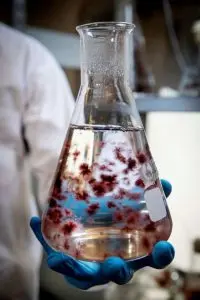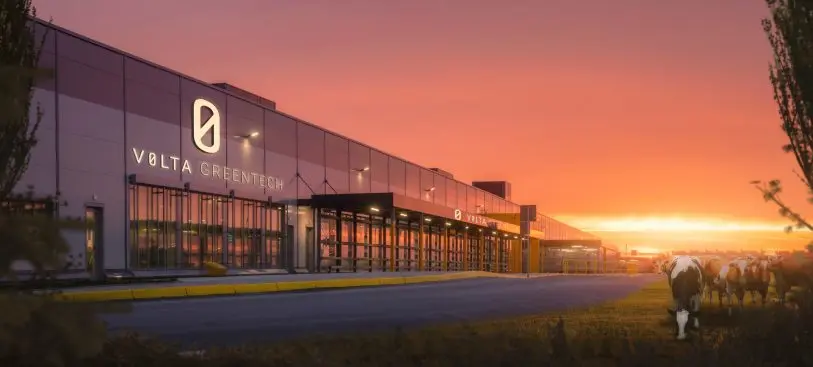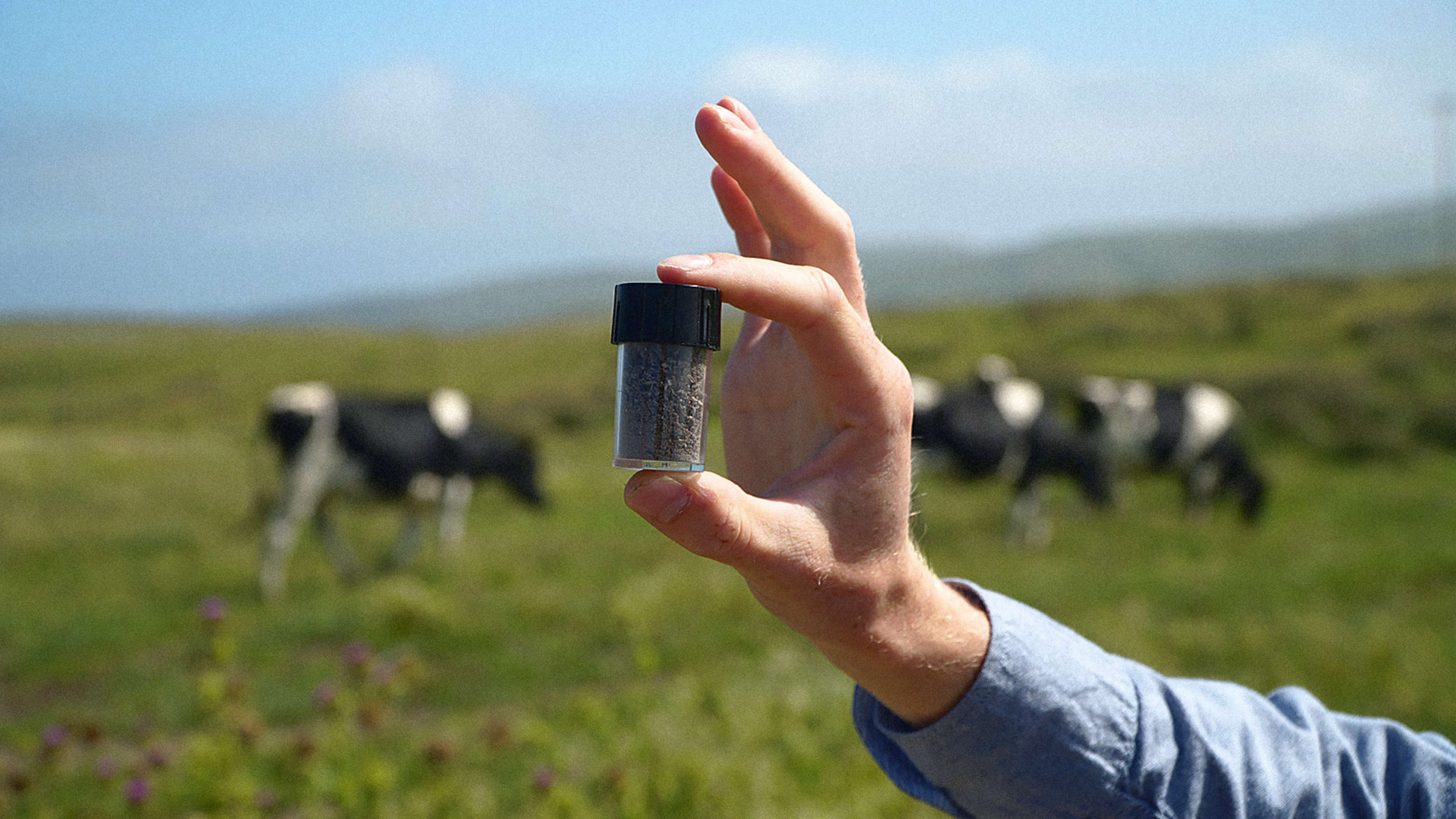In a new factory on the Swedish coast, a startup called Volta Greentech will soon begin commercial production of Asparagopsis taxiformis, a type of red seaweed that’s never been grown before on land. The seaweed is being farmed because it has a unique ability to fight climate change: When it’s added to cattle feed, the cows that eat it burp less methane, a potent greenhouse gas that’s a major contributor to global emissions.
The company, a little over a year old, started by chance when one of the founders saw a story on Reddit about research on the methane-reducing potential of the seaweed. “I was a student at the time, and I was thinking, why is this research not getting out to farms if the results are so promising?” says Fredrik Åkerman, cofounder and CEO of Volta Greentech. “I started looking into how could this research be commercialized.”

Scientists have tested a variety of ways to reduce cattle belches, and Mootral, another startup, is now testing a garlic-based supplement that helps cows better digest their fiber-rich diets. But red seaweed appears to be particularly effective. Researchers at UC Davis tried adding 1% of the seaweed to cattle feed and saw as much as a 60% reduction in methane emissions, twice as much as Mootral’s supplement; in lab tests in Australia, researchers found that adding 2% of the seaweed to cattle feed reduced emissions 99%. The cows don’t appear to mind eating it, unlike some other supplements that researchers have tested, including one that used curry. And the milk and meat from cows that ate the seaweed don’t taste any different.
Wild red seaweed can’t easily be harvested at the scale needed to feed 1.5 billion cattle, which is why Volta Greentech is trying to industrialize the process. Over the last year, it has tested ways to grow the seaweed most efficiently in its lab. The new factory will grow the seaweed under artificial lights, in tanks that pull fresh seawater from the ocean. Waste heat from a nearby oil refinery will heat the building and the water. “The production itself can become very sustainable because algae, just like trees, take in CO2 to grow,” says Åkerman. “So we will be pumping in carbon dioxide into the production facility to make sure that the algae grows faster, and at the same time, capturing that CO2.” (The company is beginning to source that CO2 from carbon capture technology used at other polluting companies.) The basic elements of the new facility are ready now, including the system for filtering seawater, and with a new round of funding, the company plans to finish building out the factory and begin production later this year.

The startup is also working with farmers and food companies to find the best business model for the supplement. For now, they expect that consumers will pay a slight premium for climate-friendly milk or meat. In the longer term, they’re hoping to prove that the supplement can help improve the health of cows and help them grow faster, so farmers have an additional incentive to invest in the product. Regulation may also push the adoption of this type of product. In California, for example, dairy farmers are required to cut methane emissions 40% by 2030. Some of that can come from other changes on farms, such as turning the methane in manure into electricity. But changes in cattle feed could also contribute.
The product doesn’t mean that burgers will suddenly become environmentally harmless—producing meat and milk often has other consequences, such as clear-cutting rainforests to grow soy for cattle feed. But the supplement can help while consumers begin to transition to alternatives such as the plant-based Impossible Burger. “Consumer behavior needs to change,” Åkerman says. “We can’t eat meat and drink milk in the way we’re doing it now. . . . But this is part of the solution. If we could reduce methane, that would be good for the people that are not transitioning over to a plant-based diet. If consumers buy meat and milk that is methane-reduced, they’re still doing something that is better for the climate than if they eat conventional meat or milk.”
Recognize your brand’s excellence by applying to this year’s Brands That Matter Awards before the early-rate deadline, May 3.
